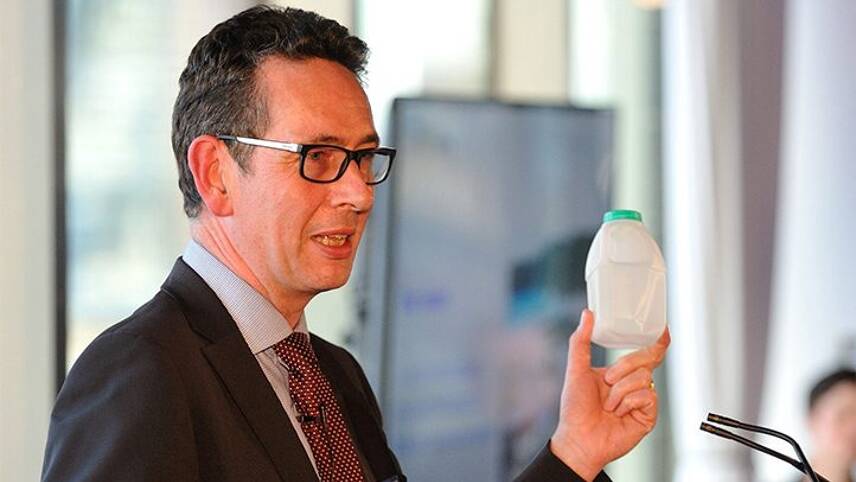Register for free and continue reading
Join our growing army of changemakers and get unlimited access to our premium content

Many countries at COP 26 showcased big, eye-catching green technology projects with a focus on innovating our way out of the climate crisis. But this will only get us so far. We need to both invest in the new and wean ourselves off our dependency on the old.
This will mean fundamentally changing the global systems on which we rely to produce the food we eat, create the buildings we live and work in, make the clothes we wear and manufacture the goods we need to live our lives.
There must be recognition of the need to re-invent the modern industrialised world into one no longer fuelled by our planet.
Thinking beyond borders
The climate crisis is felt everywhere. Solutions have to involve thinking beyond borders, agendas, politics and profit. It is too tempting to think territorially and get your own house in order but simply displace the problem elsewhere. This is the case for countries thinking about their own emissions or businesses balancing the impact of their own operations but failing to address their supply chains.
Systems change at every stage of global supply chains and consumption emissions must be considered alongside tackling only territorial emissions.
We’ve shown it can be done through the power of partnership; underpinned by aligned policies from governments (which unlock investment) and where citizens are an essential part of the journey.
This creates a joined-up, global movement for change, where everyone is working to the same goal and supporting those countries less able to deal with the climate emergency themselves.
A new way of consuming
With nearly half of all greenhouse gas emissions down to how we produce and consume, our current model is incompatible with 1.5C. Our take-make-waste culture is depleting our planet’s stock of natural resources faster than it can replenish them. We need to change the way we consume.
We are filling fridges with food we don’t eat, wardrobes with clothes we don’t wear and attics with electronics that we don’t use.
A 1.5C world is one where we don’t waste food, we wear our clothes, and goods are designed to last. Where we end the staggering amount of waste not only contributing to climate change but polluting our countryside and oceans, and damaging biodiversity.
Businesses and governments are both crucial in making this shift. They will need to support the development of new business models to change this way of consuming. If they get it right, it will be a big opportunity rather than a threat to our way of life.
New ways of consuming won’t negatively affect the quality of our lives – they will enhance it. A washing machine built to last which doesn’t break down, or is fixed if it does, is a better way of living. The calculator which still works decades after it was bought is still great to use. Not wasting food saves us up to £700 for the average family at the moment. This is a win-win world.
Reframing the narrative
We’re not advocating a hair-shirt existence or a return to lives pre-industrial revolution. A world where resources are used sustainably is a better world with multiple benefits. This truth needs to inform the narrative.
For consumers we get affordable goods that last and ease our environmental footprint (something we all want to do). What isn’t there to like about saving money by not wasting it on food we don’t eat or clothes we don’t wear? Our Love Food Hate Waste and Love Your Clothes campaigns are already showing the way.
For businesses, this approach unlocks innovation, opens up exciting new markets and creates the opportunity to make significant financial savings. UK businesses are working together and stepping up to the plate through WRAP’s Courtauld Commitment, Textiles 2030 and The UK Plastics Pact. They are already reaping the benefits of collaboration and system change.
For governments, this offers a way to meet international environmental commitments, stimulate innovation and investment, build economies and create jobs. It will be delivering what people want too – working together to tackle climate change and making a better world. Doesn’t that sound like a recipe for getting re-elected?
So, even though the scale of change is undoubtedly daunting, that truth doesn’t need to be uncomfortable. The potential is for a life which is exciting and progressive; the chance to build a healthier planet and a fairer world for us and future generations. It’s time to get comfortable with change.
Marcus Gover is chief executive of WRAP



Please login or Register to leave a comment.